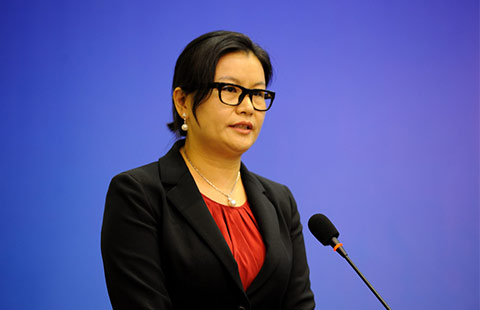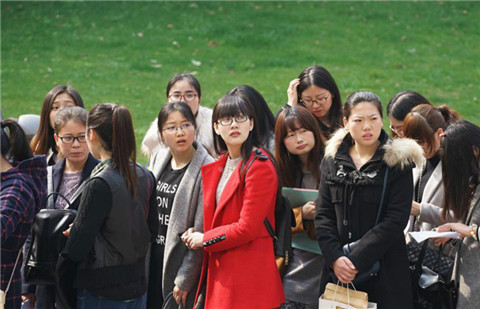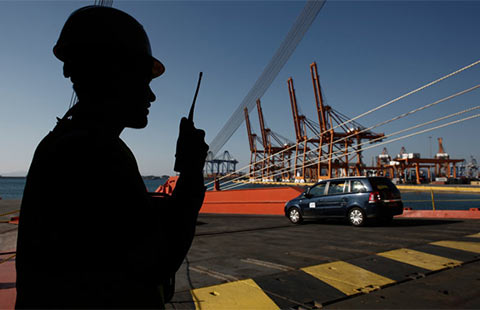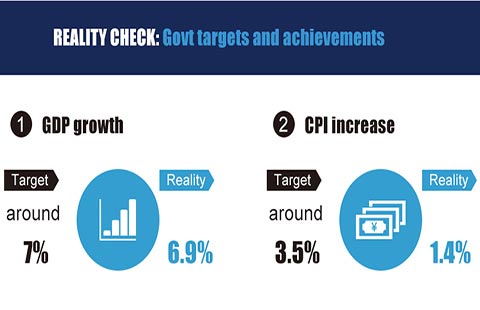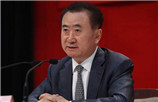Global economic woes mire China in trade rows
By Ding Qingfen and Li Jiabao (China Daily) Updated: 2012-09-19 09:47"2012 will be a difficult year for China and its exports," said Yu Miaojie, a professor at Peking University's national development research institute.
"To reduce the US' trade deficit with China, the Obama administration will try to use trade disputes to reduce its imports of certain types of goods from China," he said.
|
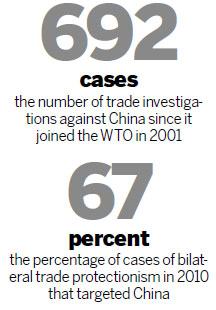 |
The EU has been no less aggressive. In March, the European Commission, the bloc's executive body, said it was considering imposing duties on Chinese products that it alleged were subsidized. In doing so, it said it believed European companies were hesitant to attempt to have protective measures applied, saying they feared China would retaliate.
Trade experts have said imposing the proposed duties would violate WTO rules.
Two months later, reports appeared, saying that the European Commission had also prepared a case against Huawei Technologies Co Ltd and ZTE Corp, both Chinese telecommunications equipment companies.
Economists and trade experts say such cases are becoming ever more common as the global economy weakens and unemployment rates remain high in many rich countries.
The US and the EU are China's two chief trade partners and both are struggling with economic difficulties.
The US' GDP growth slowed to 1.5 percent in the second quarter of 2012, when consumer spending dropped to its slowest pace in the year. That was the most anemic rate the country has seen since the third quarter of 2011, according to the US Commerce Department.
The country's economic growth is expected to further decelerate in the third quarter, falling to a rate of between 1 and 1.5 percent, according to economists' forecasts.
The US is also struggling with a high rate of unemployment. In June, the rate stood at 8.2 percent.
Meanwhile, the German Constitutional Court has ruled that the European Stability Mechanism, a proposed fund that would be used to bail out eurozone countries, is legal. European countries' prospects, though, have not brightened greatly.
The credit rating business Moody's Investors Service recently changed its outlook for three European countries - Germany, the Netherlands and Luxembourg - taking it from a stable rating to a negative one.
"There is increasing concern worldwide about the eurozone," said Wang Yiming, vice-president of the National Development and Reform Commission's Academy of Macroeconomic Research.
Shift to high-end
"I don't think these trade frictions will get out of control, and there is little possibility that they will turn into a trade war," said Zhang from the ministry.
Yu from Peking University agreed.
"I don't see any possibility of there being a trade war between China and its chief trade partners in the short term," he said. "But both the Chinese government and domestic companies have to take measures to prevent other possible trade investigations."
Zhang warned that the current wave of protectionism could be the start of a long-term trend.
"An increasing number of these cases appear to target advanced Chinese industries, including those involved in high technology and services, rather than older types of manufacturing," he said.
"We should be very mindful of this."
- How we all gain in the power of two
- Solving solar panel friction through dialogue
- China-bashing talks useless to US economy
- US files WTO dispute against China on auto subsidies
- Telecom firms deny US security threat allegation
- US QE3 may fail to meet expectations
- US to keep anti-dumping duty on China pure magnesium
- Merkel urges dialogue to solve EU-China solar dispute
- China reiterates opposition to protectionism
- Spurring scientists to exploit research
- Innovation blooms in manufacturing base Guangdong province
- Driven by the dream of making world-class Chinese automobiles
- Hopes rise high for stock market rally till April-end
- Mia.com growing from moms' dreams to a masculine firm
- Infographic: The low-down on China's richest women
- Neiwai cashing in on 'higher form of sexiness'
- What drives China's young female entrepreneurs
